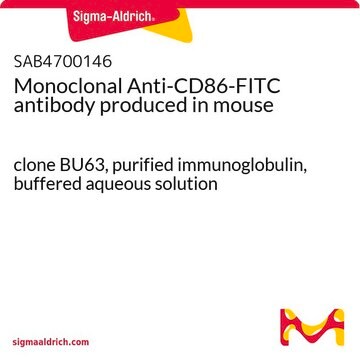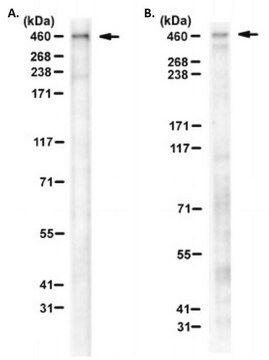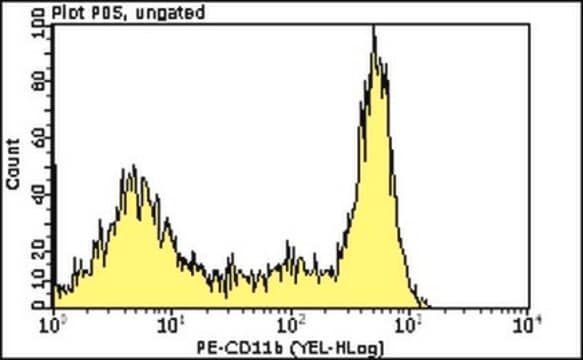MABF515
Anti-CD11b Antibody (human/mouse), PE-Cy5, clone M1/70
clone M1/70, 0.2 mg/mL, from rat
Sinônimo(s):
Integrin alpha-M, CD11 antigen-like family member B, CR-3 alpha chain, Cell surface glycoprotein MAC-1 subunit alpha, Leukocyte adhesion receptor MO1, Neutrophil adherence receptor, CD antigen CD11b
About This Item
Produtos recomendados
fonte biológica
rat
Nível de qualidade
conjugado
PE-Cy5
forma do anticorpo
purified antibody
tipo de produto de anticorpo
primary antibodies
clone
M1/70, monoclonal
reatividade de espécies
mouse, human
embalagem
antibody small pack of 25 μg
concentração
0.2 mg/mL
técnica(s)
flow cytometry: suitable
immunofluorescence: suitable
immunohistochemistry: suitable
immunoprecipitation (IP): suitable
Isotipo
IgG2bκ
Condições de expedição
wet ice
modificação pós-traducional do alvo
unmodified
Informações sobre genes
human ... ITGAM(3684)
Categorias relacionadas
Descrição geral
Imunogênio
Aplicação
Inflammation & Immunology
Qualidade
Flow Cytometry Analysis: 0.125 µg of this antibody detected CD11b in one million C57Bl/6 bone marrow cells.
forma física
Armazenamento e estabilidade
Exoneração de responsabilidade
Not finding the right product?
Try our Ferramenta de seleção de produtos.
Código de classe de armazenamento
12 - Non Combustible Liquids
Classe de risco de água (WGK)
nwg
Ponto de fulgor (°F)
Not applicable
Ponto de fulgor (°C)
Not applicable
Certificados de análise (COA)
Busque Certificados de análise (COA) digitando o Número do Lote do produto. Os números de lote e remessa podem ser encontrados no rótulo de um produto após a palavra “Lot” ou “Batch”.
Já possui este produto?
Encontre a documentação dos produtos que você adquiriu recentemente na biblioteca de documentos.
Nossa equipe de cientistas tem experiência em todas as áreas de pesquisa, incluindo Life Sciences, ciência de materiais, síntese química, cromatografia, química analítica e muitas outras.
Entre em contato com a assistência técnica






